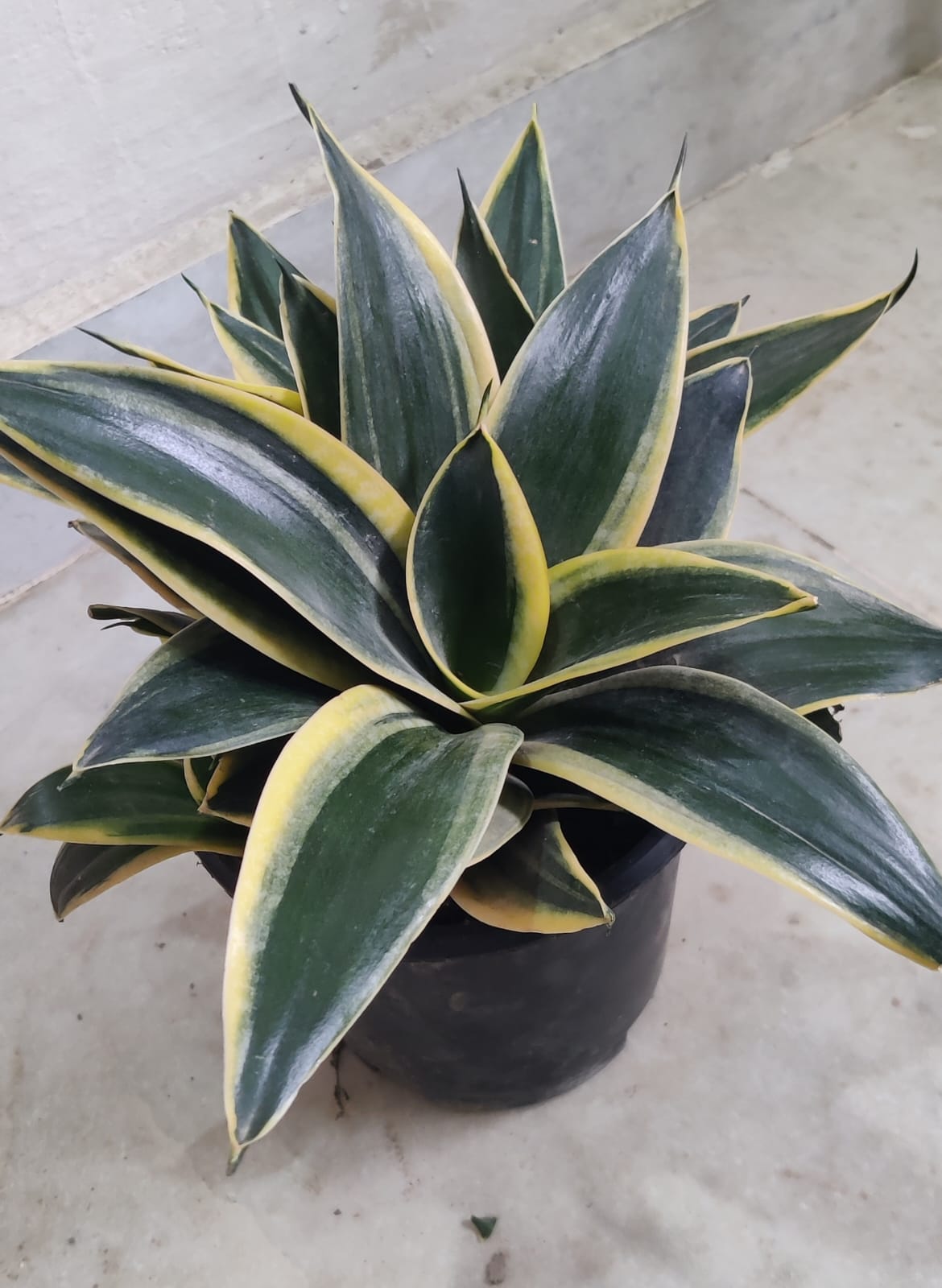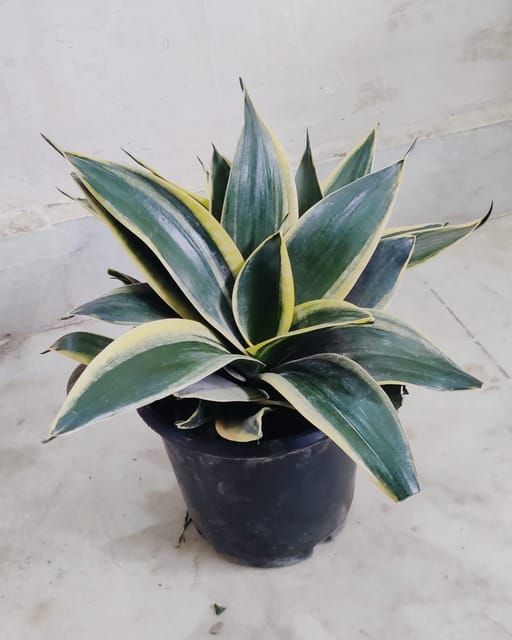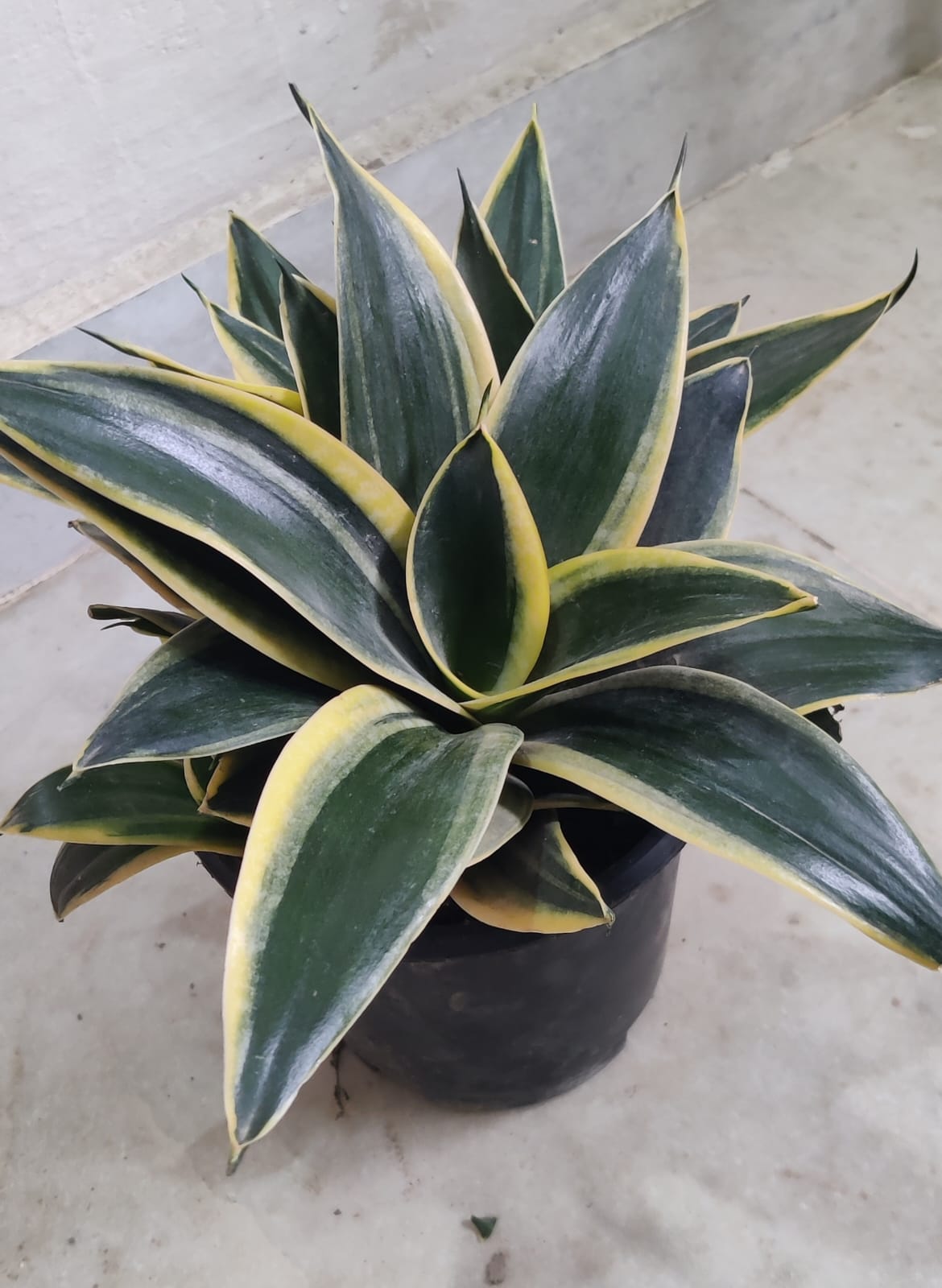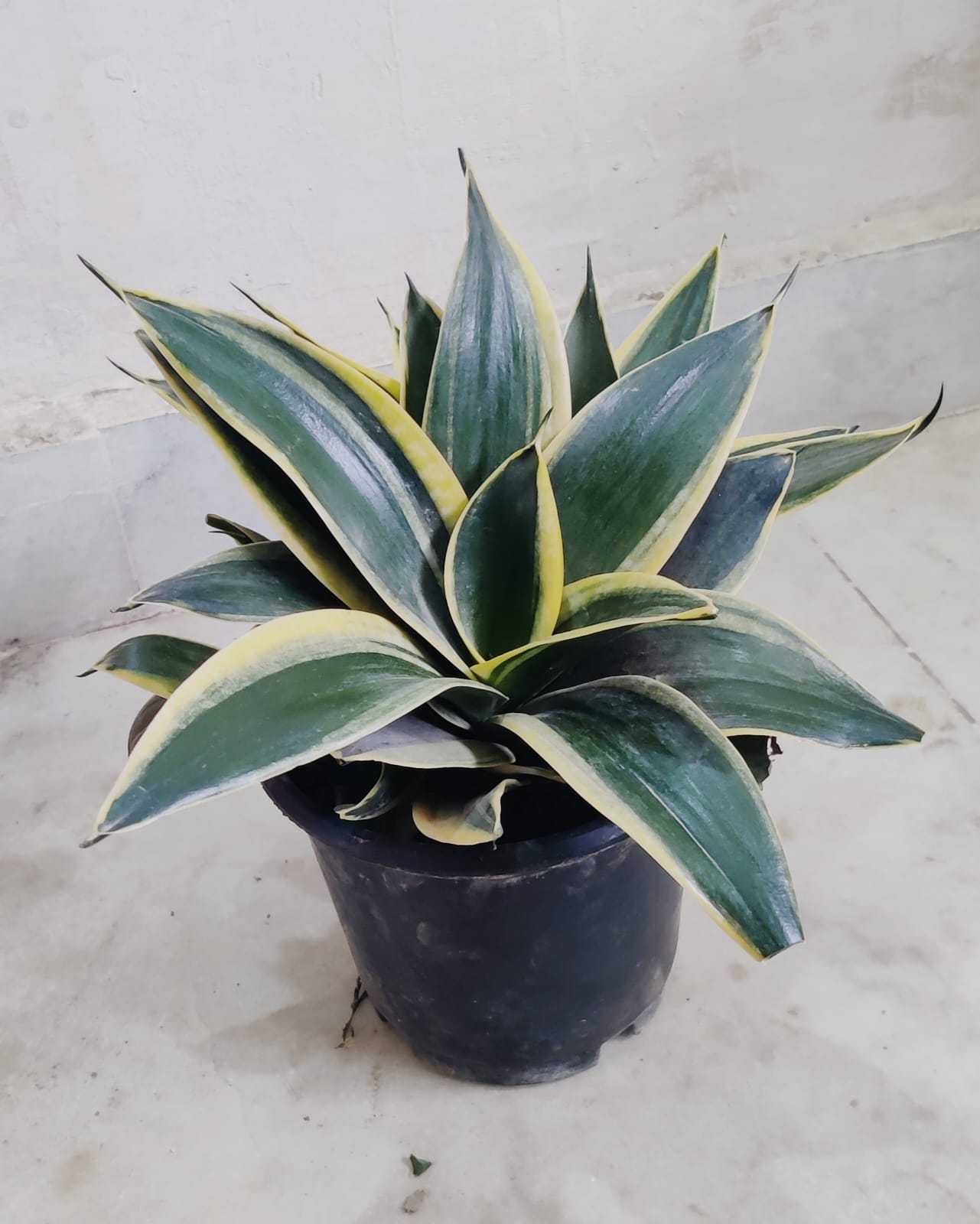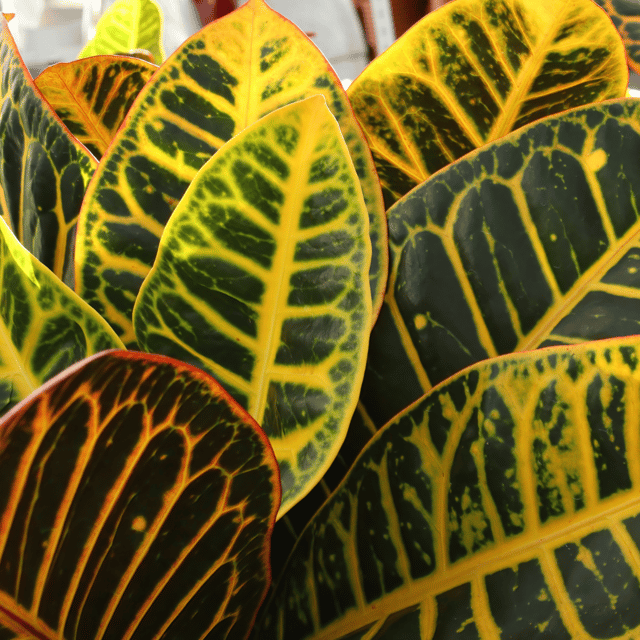₹599₹239
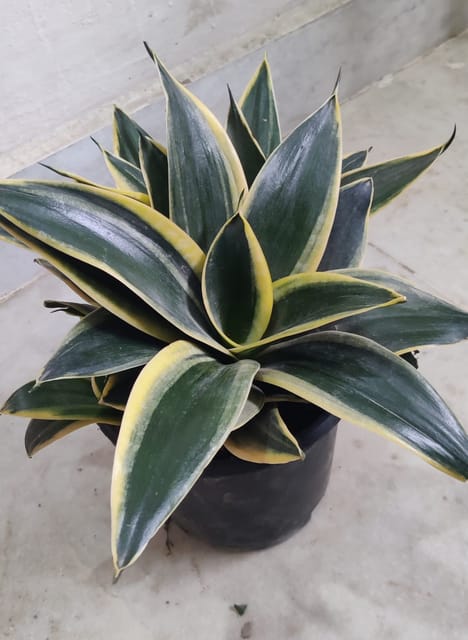
Sansevieria Trifasciata Jade Dwarf Marginated Indoor Plant(Pot Not Included)
Sold By : Himalaya Nursery
₹169 ( 57% OFF )
MRP ₹400 Inclusive of all taxes
Delivery
Product Information
| # | Attribute | Value |
|---|---|---|
| 2. | brand | Himalayan Nursery |
The Sansevieria trifasciata, commonly known as Snake Plant or Mother-in-law's Tongue, is a popular and low-maintenance indoor plant. The "Jade Dwarf Marginated" is likely a specific cultivar or variety of the Snake Plant. Here are some general care guidelines for Sansevieria trifasciata:
1. Light:
- Snake plants tolerate a wide range of light conditions. They can thrive in low to bright, indirect light. Avoid prolonged exposure to direct sunlight.
2. Watering:
- Allow the soil to dry out between waterings. Snake plants are drought-tolerant and prefer slightly drier conditions. Overwatering can lead to root rot.
3. Soil:
- Use a well-draining potting mix. A cactus or succulent mix is suitable. Snake plants are adaptable to different soil types.
4. Temperature:
- Snake plants prefer temperatures between 70-90°F (21-32°C) during the day and can tolerate cooler temperatures at night.
5. Humidity:
- Snake plants are adaptable to normal indoor humidity levels. They are well-suited to the dry air found in many homes.
6. Fertilization:
- Feed with a balanced liquid fertilizer diluted to half strength every 2-4 weeks during the growing season (spring and summer). Reduce fertilization in the fall and winter.
7. Pruning:
- Pruning is generally not necessary for Snake plants. You can remove any damaged or yellowing leaves at the base.
8. Propagation:
- Snake plants can be propagated by division. Separate a healthy pup or offset from the main plant and plant it in its own container.
9. Pests:
- Snake plants are relatively resistant to pests, but occasionally, they may attract spider mites or mealybugs. Wipe the leaves with a damp cloth to remove dust and discourage pests.
10. Potting: - Choose a pot with drainage holes to prevent waterlogging. Repot when the plant outgrows its container or every 2-3 years.
11. Toxicity: - Keep in mind that Snake plants are toxic if ingested, so place them out of reach of pets and small children.
The "Jade Dwarf Marginated" variety may have specific characteristics in terms of size and leaf pattern. Adjust care based on the specific traits of this cultivar and any care instructions provided by the nursery or seller
Recently Viewed
Customer Review
Be the first to review this product
